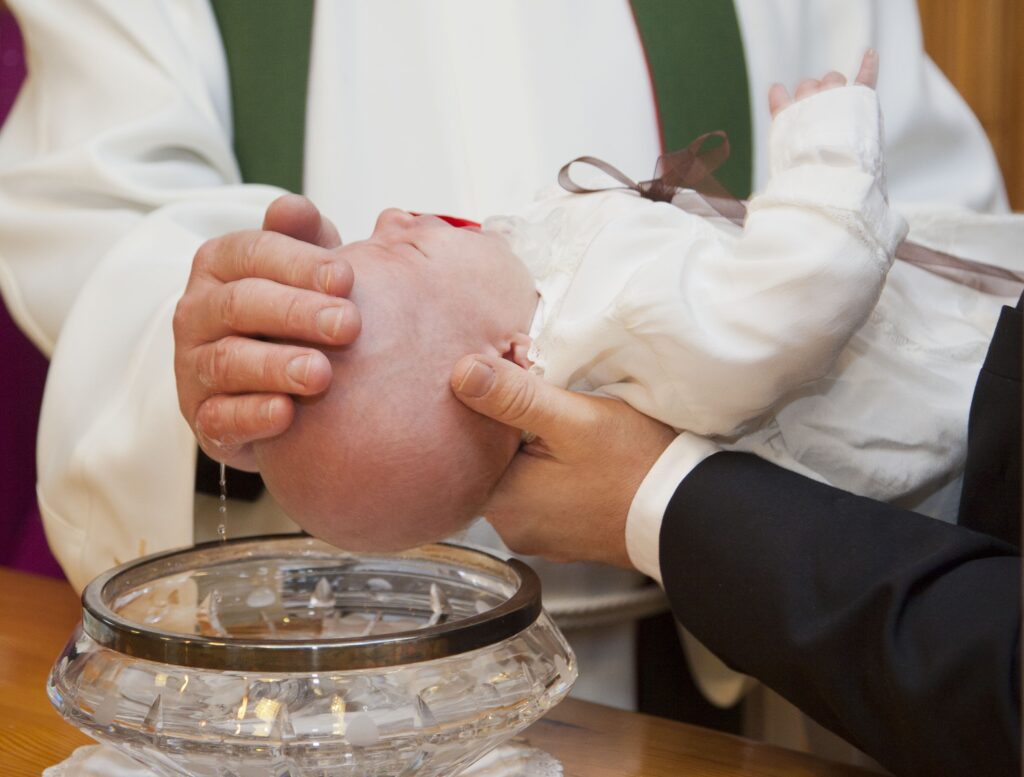Baptism
Baptism is the sacrament of initiation into the Catholic Church and is the first step in a lifelong journey of faith. Through baptism, individuals are cleansed of original sin and become members of the Church.

Baptism is a sacrament of initiation in the Catholic Church that marks a person's entry into the Christian community. It is the first of the three sacraments of initiation, and it is the foundation of a person's life in the Church. In Baptism, a person is cleansed of original sin and is given the grace of new life in Christ.
Canon law outlines the requirements for receiving Baptism for both infants and adults. Here are the requirements for each:
For Infants:
The parents or guardians must be practicing Catholics, or at least one of them must be a practicing Catholic, and they must give their written consent for the child to be baptized.
A godparent must be chosen to assist the parents in raising the child in the faith. The godparent must be a practicing Catholic who has been confirmed and has received the Eucharist.
For Adults:
Adults who wish to be baptized must undergo a period of preparation and formation in the Catholic faith, known as the Rite of Christian Initiation for Adults (RCIA). This process involves classes, prayer, and discernment to help the individual deepen their understanding of the faith and make a deliberate decision to enter the Church.
If the adult is not already baptized, they will receive the sacraments of Baptism, Confirmation, and the Eucharist at the Easter Vigil.
In both cases, the specific requirements for Baptism may vary from diocese to diocese, and it is important to speak with your local parish for more information on the procedures that must be followed in your area. Regardless of the specific requirements, Baptism is a profound and life-changing event that marks a person's entry into the Christian community and the beginning of a lifelong journey of faith and growth in the Church.
Canon law outlines the requirements for receiving Baptism for both infants and adults. Here are the requirements for each:
For Infants:
The parents or guardians must be practicing Catholics, or at least one of them must be a practicing Catholic, and they must give their written consent for the child to be baptized.
A godparent must be chosen to assist the parents in raising the child in the faith. The godparent must be a practicing Catholic who has been confirmed and has received the Eucharist.
For Adults:
Adults who wish to be baptized must undergo a period of preparation and formation in the Catholic faith, known as the Rite of Christian Initiation for Adults (RCIA). This process involves classes, prayer, and discernment to help the individual deepen their understanding of the faith and make a deliberate decision to enter the Church.
If the adult is not already baptized, they will receive the sacraments of Baptism, Confirmation, and the Eucharist at the Easter Vigil.
In both cases, the specific requirements for Baptism may vary from diocese to diocese, and it is important to speak with your local parish for more information on the procedures that must be followed in your area. Regardless of the specific requirements, Baptism is a profound and life-changing event that marks a person's entry into the Christian community and the beginning of a lifelong journey of faith and growth in the Church.